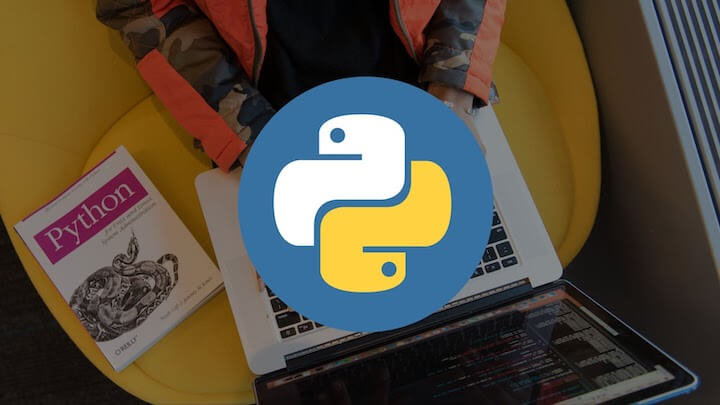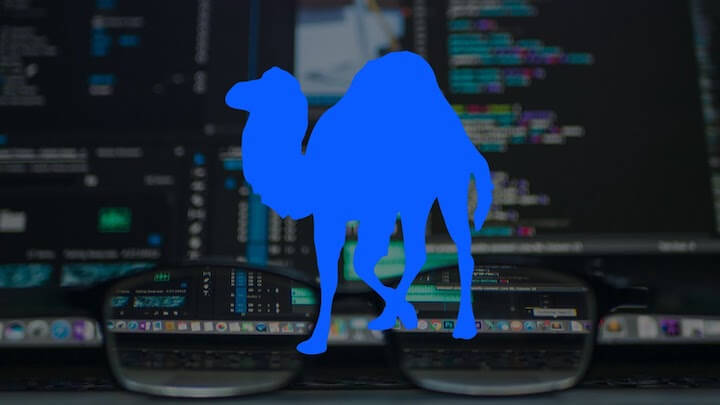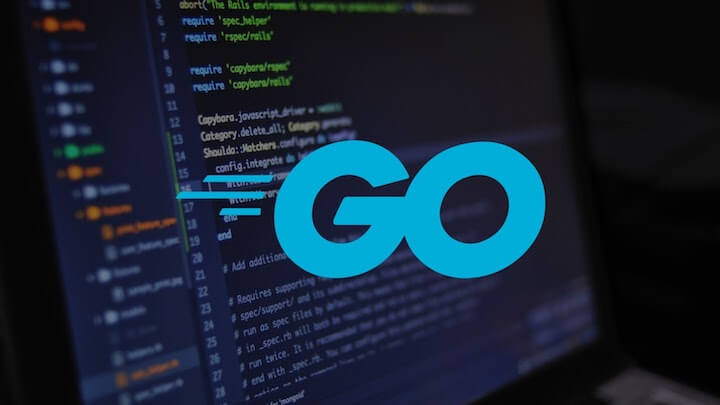Unveiling the Top Programming Languages for Effective Web Scraping: 8 Best Options

In the dynamic realm of the digital age, information fuels innovation, and the ability to harness it is crucial. Web scraping, the art of extracting data from websites, has emerged as an indispensable technique for gathering insights, driving decision-making, and powering automation.
So, join us as we explore the landscape of web scraping languages!
The Top 5 + 3 Best Programming Languages for Scraping (And Why)
As the demand for data-driven insights continues to surge, mastering the right programming language for web scraping is paramount. From the pioneers to the newcomers, each programming language offers a unique set of tools and libraries that cater to diverse web scraping needs. We delve into the nuances of these languages, exploring their suitability for various scraping tasks.
📖😮💡 You might also be interested in 5 Ways to Get Around Captcha and Do Web Scraping without Interruptions
#1 Python: The powerhouse of web scraping

Python stands out as one of the premier programming languages for web scraping, owing to its user-friendly syntax, expansive ecosystem, and seamless integration capabilities.
🐍 The easiest one to write
Python’s elegant and human-readable syntax makes it exceptionally approachable, even for those new to programming. Its simplicity facilitates quick adoption and encourages developers to focus on the scraping logic rather than grappling with convoluted code. With concise and expressive code constructs, scraping becomes more intuitive, enabling novices and experts to extract data effortlessly.
🐍 Rapid and intense development
Python’s dynamic nature allows for rapid prototyping and quick iterations. Developers can easily experiment, refine, and fine-tune their scraping scripts, ensuring they keep up with the ever-changing web landscape. Additionally, Python’s vibrant community ensures a constant influx of cutting-edge libraries and tools, expediting the development process further.
🐍 A ton of libraries, frameworks, and tools
Python’s strength for web scraping lies in its rich repository of libraries and frameworks tailored specifically for this purpose. Renowned libraries like Beautiful Soup and LXML offer powerful HTML parsing and manipulation capabilities, while frameworks like Scrapy provide a high-level structure for building sophisticated scraping pipelines. These tools streamline tasks such as…
- Handling cookies
- Managing sessions
- Dealing with asynchronous requests…
… freeing developers from reinventing the wheel.
🐍 Cohesive when you need another language
Python’s versatility extends beyond its realm. When scraping tasks require collaboration with other languages, Python smoothly integrates with them, enabling a harmonious workflow. Whether utilizing JavaScript for rendering dynamic content through libraries like Selenium or employing C/C++ for performance-critical tasks, Python is a cohesive glue that binds various technologies together seamlessly.
#2 Ruby: Elevating web scraping to new heights

Ruby, a dynamic and expressive programming language, has garnered immense popularity within the web scraping community. Renowned for its clean syntax, versatility, and extensive libraries, Ruby offers a unique approach to web scraping, making it a compelling choice for developers seeking efficient solutions.
💎 The most popular open-source option
Ruby boasts a vibrant open-source community that has contributed to an impressive array of gems (Ruby’s term for libraries), catering specifically to web scraping tasks. One such gem is Nokogiri, a powerful HTML and XML parsing library. Its intuitive syntax empowers developers to navigate and manipulate HTML documents effortlessly, making scraping tasks more manageable and enjoyable.
💎 Combines several languages — Perl, Smalltalk, Eiffel, etc.
One of Ruby’s strengths is its amalgamation of various programming paradigms borrowed from languages like Perl, Smalltalk, and Eiffel. This amalgamation results in a language that is both elegant and efficient. When it comes to web scraping, this diversity of influences translates to a versatile toolset that can easily tackle a wide range of scraping scenarios.
💎 Packaging managers for easier scraper setups
Ruby offers two prominent packaging managers — RubyGems and Bundler — that simplify setting up and managing web scraping projects.
- RubyGems allows developers to install, update, and distribute gems effortlessly.
- Bundler manages gem dependencies for projects, ensuring consistent and hassle-free development environments.
These tools streamline the scraping workflow, enabling developers to focus on extracting insights rather than grappling with setup complexities.
#3 Node.js: Empowering dynamic data scraping

Node.js, built on the powerful foundation of JavaScript, has emerged as a leading choice for dynamic data scraping tasks. With its event-driven architecture and non-blocking I/O operations, Node.js offers a unique approach that excels in scenarios where real-time data updates and dynamic content extraction are paramount.
🟢 Based on JavaScript
Being built on JavaScript, Node.js inherits the language’s ubiquity and familiarity, making it an appealing choice for developers. This seamless transition from frontend to backend empowers developers to create end-to-end scraping solutions using a single language, streamlining the development process and enhancing code reusability.
🟢 10/10 for streaming
Node.js shines when it comes to streaming data. Its built-in support for streaming allows developers to process and manipulate data in smaller, manageable chunks as it’s being received. This characteristic is invaluable for scraping tasks involving large datasets or continuous information streams, enhancing performance and memory efficiency.
🟢 10/10 for Socket-based Implementation
Node.js leverages its event-driven architecture to handle socket-based communication efficiently. This aspect proves incredibly beneficial when scraping data from real-time sources such as social media feeds, financial markets, or live auctions. Handling concurrent connections easily ensures that the scraping process remains smooth and responsive.
🟢 10/10 for APIs
Node.js boasts an extensive ecosystem of packages, many designed for web scraping. Modules like Cheerio offer a familiar jQuery-like syntax for HTML parsing, while libraries such as Puppeteer provide headless browser automation for more complex scraping scenarios. These tools enhance the scraping experience, enabling developers to extract dynamic data from JavaScript-rendered pages effectively.
🟢 Takes only one core from the central processing unit
Node.js adopts a single-threaded, event-loop model, utilizing just one core of the Central Processing Unit (CPU). While this might seem limiting, Node.js excels at handling I/O-bound tasks like web scraping. Its non-blocking nature allows it to efficiently manage multiple asynchronous operations, making it particularly well-suited for scenarios where data is being fetched from various sources concurrently.
#4 Perl: Mastering text parsing and crawling

In text parsing and web crawling, the Perl programming language has maintained its status as a formidable choice. Renowned for its prowess in handling complex text manipulation tasks, Perl boasts an array of libraries and tools that make it an excellent option for extracting and processing data from websites.
🐪 Libraries for parsing from its strong community
Perl’s extensive community has contributed a wealth of libraries that cater to various parsing needs.
- The HTML::Parser module, for instance, provides a robust foundation for HTML parsing, enabling developers to extract structured data from web pages.
- Furthermore, the Regexp::Common module offers prebuilt regex patterns for common data formats, easing the process of extracting specific information from text.
🐪 WWW::Mechanize for effective page navigation
One of Perl’s standout tools for web crawling is the WWW::Mechanize module. This library offers a high-level interface for automated web browsing, enabling developers to programmatically navigate websites, fill out forms, and interact with page elements. Its intuitive API streamlines the crawling process, making it particularly useful for scenarios where effective page navigation is essential.
🐪 A concise programming language
Perl’s concise syntax and built-in support for regular expressions make it an ideal language for text parsing. The language’s focus on string manipulation and pattern matching simplifies data extraction from unstructured or semi-structured text sources. This concise nature translates to efficient code, reducing the complexity of parsing tasks and accelerating development.
#5 Golang: Accelerating your entry into web scraping

Golang, also known as Go, has rapidly gained popularity as a versatile programming language that excels in various domains, including web scraping. With its focus on simplicity, efficiency, and concurrency, Go offers an excellent starting point for developers aiming to dive into scraping.
🧸 Beginner-friendly
Go’s minimalist syntax and straightforward design philosophy make it an ideal language for newcomers to programming and web scraping. Its clean and readable code promotes faster learning and reduces the initial barriers to entry. Golang’s concise constructs ensure that developers can grasp essential concepts quickly, focusing on the logic of scraping rather than grappling with complex language intricacies.
🧸 Easy to parse HTML
Golang’s standard library includes powerful tools for HTML parsing, such as HTML and XML packages. These packages allow developers to extract structured data from HTML documents efficiently.
Golang’s combination of simplicity and built-in HTML parsing capabilities enables beginners to get started with scraping tasks without the need to learn and integrate external libraries.
🧸 Flexible and easily scalable
Go’s lightweight concurrency model, facilitated by goroutines and channels, sets it apart from other languages. This feature allows developers to create concurrent scraping routines that can handle multiple tasks simultaneously, enhancing efficiency and speed. As scraping projects grow in complexity and scale, Go’s robust concurrency support ensures seamless adaptability and improved performance.
#6 PHP: Empowering web content manipulation
PHP, a versatile programming language tailored for web content, provides a range of libraries, such as libcurl, Nokogiri, Zend_DOM_Query, htmlSQL, FluentDOM, and Ganon, to facilitate efficient data scraping.
Notably compatible with HTML and proficient in supporting regular expressions, PHP’s parsing capabilities ensure effective information processing. Furthermore, PHP’s scripting versatility ensures that parsers developed using the language share a consistent operational methodology.
Here are its main benefits:
- Library richness: PHP offers a variety of libraries tailored for web scraping tasks, enhancing its versatility.
- HTML compatibility: Its strong compatibility with HTML simplifies data extraction from web pages.
- Regular expression support: PHP’s adeptness with regular expressions boosts its parsing capabilities.
- Script implementation: PHP’s scripting nature ensures uniformity across scraping scripts.
- Familiarity: A popular language, PHP’s widespread use ensures a broad developer base.
#7 C#: Enabling robust data scraping for large-scale projects
While primarily recognized for its dominance in game development, C# presents a formidable option for tackling extensive data scraping endeavors. Its adaptability and rich ecosystem make it an excellent choice, particularly for more substantial scraping projects.
C# offers a range of libraries and tools that empower developers to efficiently navigate and extract data from websites, proving its prowess beyond its game development roots.
The benefits of C# for large-scale data scraping are…
- Strong ecosystem: C# is backed by a comprehensive ecosystem of libraries and frameworks optimized for various tasks, including web scraping.
- Powerful frameworks: Libraries like HtmlAgilityPack and ScrapySharp provide developers with robust HTML parsing capabilities.
- Concurrency management: C# supports asynchronous programming, efficiently managing concurrent scraping tasks.
- Exception handling: The language’s robust error-handling mechanisms contribute to the stability and reliability of scraping processes.
- Integration with .NET: C#’s seamless integration with the .NET ecosystem enhances its capabilities, making it well-suited for large projects.
#8 C & C++: Unleashing efficiency in complex data scraping
Primarily recognized for system-level programming and high-performance applications, C and C++ provide a unique proposition for intricate data scraping tasks, particularly those that demand efficiency and low-level control. While commonly associated with software development, these languages can be harnessed for formidable data-scraping projects that require precision and optimization.
What are the benefits of C & C++ for complex data scraping?
- Efficiency + speed: C and C++ are renowned for their performance, making them ideal choices for quickly processing and parsing large volumes of data.
- Low-level control: These languages offer direct memory management, allowing developers to fine-tune resource allocation and optimize scraping processes.
- Custom implementations: C and C++ enable the creation of tailored scraping solutions, addressing unique challenges with precision.
- Integration with libraries: By leveraging libraries like libcurl, C, and C++, developers can enhance their scraping capabilities while maintaining low-level control.
- Cross-platform compatibility: Applications written in C and C++ can be compiled for various platforms, enabling scraping across diverse environments.
Empower Yourself!! Embrace the Art of Web Scraping
In the information age, the power to extract valuable insights from the digital realm is a skill that can truly set you apart. Web scraping, a dynamic technique that fuels data-driven decision-making, beckons you to dive into programming with renewed enthusiasm. As we’ve unveiled the top programming languages for effective web scraping, remember that the journey doesn’t end here — it’s only the beginning.
The potential that lies within Python’s simplicity, Ruby’s elegance, Node.js’s dynamism, Perl’s text-parsing prowess, Golang’s entry simplicity, C#, and C++’s efficiency, and more is boundless. Each language is a gateway to mastering the art of extracting, manipulating, and interpreting data from the vast expanses of the web.
Embrace the challenge! As you tinker with code, traverse APIs, and navigate dynamic content, you’ll hone your programming skills and cultivate a profound understanding of the digital landscape! Happy coding!
